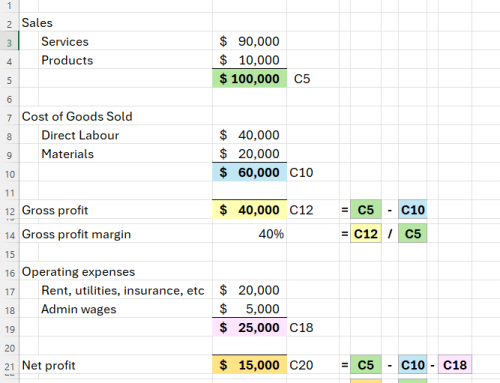LeavePlus (CoINVEST) & Incolink: What Trades Businesses Need to Know

If you are a worker/tradie, please contact LeavePlus (formerly CoINVEST) or IncoLink directly:
Click for here for LeavePlus (CoINVEST) or call them on 1300 264 683
Click here for IncoLink or call them on (03) 9639 3000
What owners of trades businesses need to know about IncoLink and LeavePlus (formerly CoINVEST)
Staying on top of employee obligations is a major concern for many of the business owners I mentor in my role as a business coach.
There are, of course, the obvious things to cover off like tax and superannuation. But certain industries have other specific compliance considerations to manage.
Businesses working within the Victorian building and construction industry have additional and sometimes complex obligations, such as:
- contributing to the portable long service leave scheme
- meeting requirements of enterprise bargaining agreements – eg redundancy pay, portable sick leave, insurances etc
- providing a safe and healthy workplace in an industry that must deal with an increased risk of trauma, injury and mental health concerns.
Organisations such as LeavePlus (formerly CoINVEST) and Incolink have been set up to make it simpler for employers within the building and construction industry to meet these additional employer obligations.
Since they’re so important to the day to day of running of the tradies we coach, I thought it was worth exploring what they do and how their services work.
What is LeavePlus?
LeavePlus used to be known as CoINVEST. It’s the trustee company responsible for administering the Portable Long Service Leave Scheme for those working in the building and construction industry in Victoria.
Traditionally, employees had to maintain seven years continuous service with a single employer (with no more than three months break) to be awarded a long service leave entitlement.
The LeavePlus scheme was created in acknowledgement of the fact that this simply isn’t achievable for most working within the building and construction industry; employees are often engaged on a project basis and quite frequently move between companies. In fact, LeavePlus estimates that some 97% of participants in the scheme have worked with a minimum of two companies within their seven-year eligibility period.
The key word here is ‘portable’
The main benefit of the LeavePlus scheme is that it allows employees to carry their long service entitlement with them from job to job.
There is also some flexibility around the ‘continuous’ part; even employees who take breaks from working within the industry can still be eligible if they take up a covered position within four years (ie 3 years and 51 weeks). Additionally, time served at TAFE college or as an apprentice are counted as part of the continuous service period, as are all RDOs, annual leave, sick leave and public holidays.
This all goes a long way towards closing the long service leave entitlement gap for building and construction workers.
What entitlement do employees get under the portable long service scheme?
Long service leave is calculated slightly differently, depending on when an employee took up a role within the building and construction industry:
- Employees who started working in the industry before 2002 – long service leave is calculated as 13 weeks for every 15 years served (0.866 weeks of leave for every year of work).
- Employees who started working in the industry after 2002 – long service leave is calculated as 13 weeks for every 10 years served (1.3 weeks of leave for every year served).
Both can be accessed pro rata after seven years of service. After this period, most employees would be eligible for 9.1 weeks of long service leave at their full rate of pay.
Which trade sectors are covered by the scheme?
The LeavePlus scheme covers building, construction, electrical and metal workers. That said, they take a very broad definition of these categories, including sectors such as:
- Floor Covering Services
- Industrial Machinery or Equipment Services
- Landscape Gardening
- Non-Destructive Testing Services
- Parquetry Floor Laying
- Shopfitting
- Watering System Services
View the full list of all the trades covered by the scheme on the LeavePlus website.
How does it work?
All employers, workers, working subcontractors, working directors, and apprentices are legally required to register with LeavePlus.
Employers are also required to:
- submit a Workers Day and Wages Form every three months (you’ll get an email to remind you to do this each quarter).
- Pay the invoice for their quarterly contribution to the scheme. This additional on-cost is worked out at a rate of 2.7% of the total wages paid to their employees.
LeavePlus then acts as a single point of reference, tracking how many days an eligible employee has worked within a seven-year period (across all employers). Once an employee is eligible to access their long service leave entitlement, they can request a form and make a claim. LeavePlus is then responsible for paying it out to them.
How do I register with LeavePlus?
- Employers can register by submitting their details to LeavePlus via an online form
- Workers can register using a separate online form available on the LeavePlus website.
- Working Subcontractors must email their details to LeavePlus
NB: You may wish to find out if you are a working subcontractor by LeavePlus’ definition before registering. You should also note that if you also employ other construction workers, you will need to register as both an employer and a working subcontractor.
You’ll find a full list of FAQs and additional information about the LeavePlus portable long service scheme on their website
What tradie employers need to know about Incolink
What is Incolink?
While Incolink was originally formed to govern redundancy payments, it also offers insurances and wellbeing support services to those working in the commercial building and construction industries across Victoria and Tasmania.
Because it has been formed via an alliance of various employer associations and construction industry unions, the membership-based organisation offers an insightful array of financial and wellbeing support services. When you consider that they offer everything from portable sick leave to skin health checks, it’s clear that they really understand the challenges faced by the industry and the needs of those working within it.
Who has to register with Incolink?
Employers within the commercial construction sector are required to register employees with Incolink where workers are entitled to redundancy pay in accordance with:
- the terms of their Enterprise Bargaining Agreement (EBA)
- an industrial instrument
- the Contract of Employment
- Incolink Deed of Adherence
- other industrial instruments
How does it work?
Employers make monthly redundancy contribution payments to Incolink on behalf of their employees, based on the number of weeks worked on a commercial construction site during the monthly period.
A full breakdown of the rates and payment methods can be found on the Incolink website.
There are two Redundancy Funds managed by Incolink under Deeds of Trust:
- Fund 1 – for companies working in the commercial building and construction industry in Victoria or companies who have an EBA with the CFMEU and CEPU.
- Fund 2 – for companies working in the Metal, Labour Hire and Engineering trades or companies in Victoria who have an EBA with the AMWU and AWU.
The funds collected by Incolink are used to provide not only redundancy payments when required, but also other necessary benefits and support services, such as:
Portable sick leave – this scheme allows workers to take unused sick leave days with them to their next position within the commercial construction industry.
Insurance – Income protection and Trauma insurance must be paid to any employee within the commercial construction industry unless not stipulated in the EBA.
Wellbeing support services – Incolink delivers wellbeing services via their 24/7 counselling service, health and skin checks (via the Incolink bus) and mental health support via the Bluehats suicide prevention program.
Industry organisations make compliance a lot easier
Imagine the sheer amount of time, paperwork and admin associated with tracking detailed information for every employee on your worksite for things like long service leave, portable sick leave, insurance etc – it’s exhausting just thinking about it!
As a business coach, I’ve seen how the ability to centralise the administration of these obligations is a real load off for business owners who already have a lot on their minds. Plus, since registration, information management and claim processes for many of these schemes and services are now completed online, there is also very little paperwork involved and processing is quicker and easier than ever before. Keeping up with your employer obligations has never been this easy.
—



